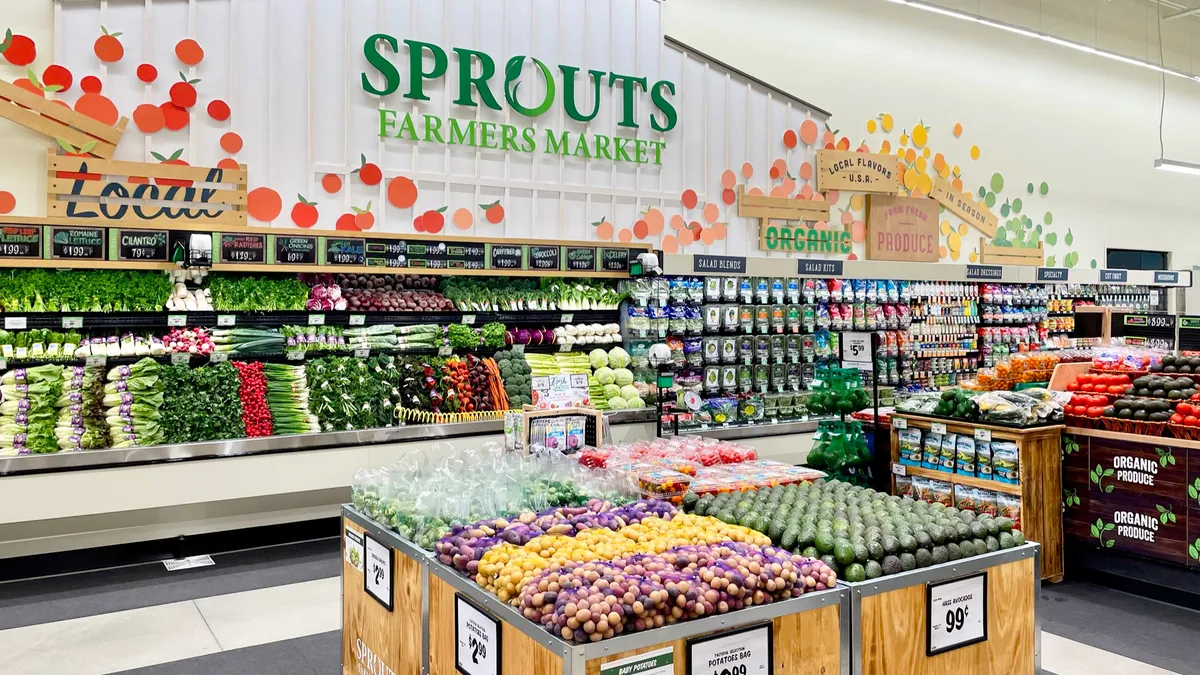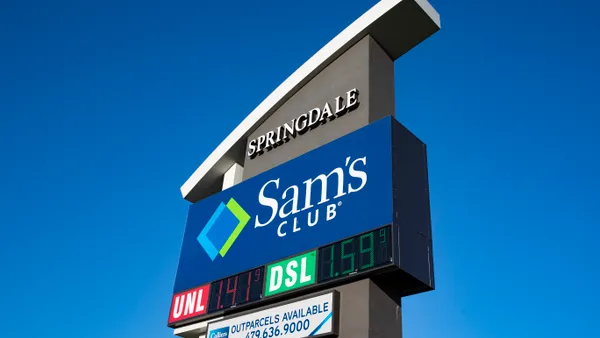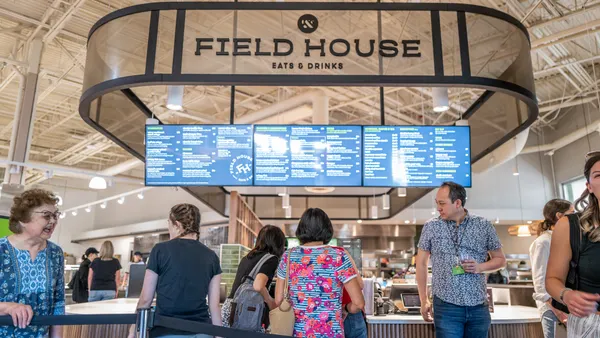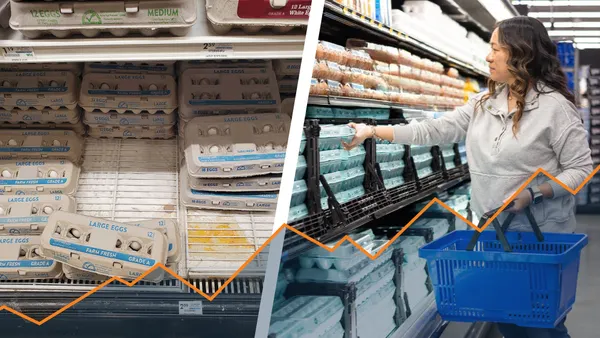Dive Brief:
- Sprouts Farmers Market launched its Rescued Organics program to all 130 of its California stores in an effort to reduce food waste, according to a Tuesday press release.
- The program takes misshapen, under-sized, over-sized or slightly off-color organic produce that would usually be discarded, despite the food being of good quality, and brings it to market.
- The specialty grocer’s announcement comes as food waste initiatives are gaining momentum within the grocery industry.
Dive Insight:
Sprouts is positioning its program as a differentiator, pointing to the scarcity of grocers in North America focused on imperfect organic produce.
The food collected through Sprouts’ Rescued Organics will be sold at a reduced price, making organic produce more accessible to shoppers, per the announcement.
In addition to selling misshapen fruits and vegetables to reduce food waste, Sprouts’ new program also supports local farmers as, typically, farmers are unable to sell imperfect produce, the announcement noted. The specialty grocer has partnered with Bako Sweet, an organic sweet potato and yam farming company, as well as Peri & Sons, an onion-growing farm company, to help rescue the produce.
“Five billion meals worth of edible food are left on farms each year, and the Sprouts Rescued Organics program is designed to help address that problem,” Nick Konat, president and chief operating officer of Sprouts, said in the press release. “This program allows our customers to partner with us to reduce food waste by taking home delicious, high quality organic fruits and vegetables that may look a little different but are perfectly good, keeping so-called ‘imperfect’ produce out of the landfills.”
The Reduced Organic program will launch with a dozen varieties of local produce, including potatoes, onions, grapefruits, lemons, oranges, pears, carrots, kiwis and bell peppers, according to the announcement.
Ninety percent of grocery retailers regard reducing food waste as a key to meeting corporate sustainability targets, according to Coresight Research survey results released in late June. However, more than half of the surveyed grocers said they do not have the technology or the management to prioritize food waste reduction.
Despite challenges, more grocers are working to implement food waste efforts. In May 2022, Kroger’s Zero Hunger | Zero Waste Foundation partnered with the Foundation for Food & Agriculture Research to more accurately measure food waste generated within U.S. households.
Walmart, in March 2022, also partnered with a large, third-party sustainability group, the Pacific Coast Food Waste Commitment (PCFWC), to reduce food waste by 50% along the West Coast by 2023. The data gathered by PCFWC from the retail giant will give a more accurate picture of waste across the retail sector and identify key waste “hot spots” that need to be addressed.












